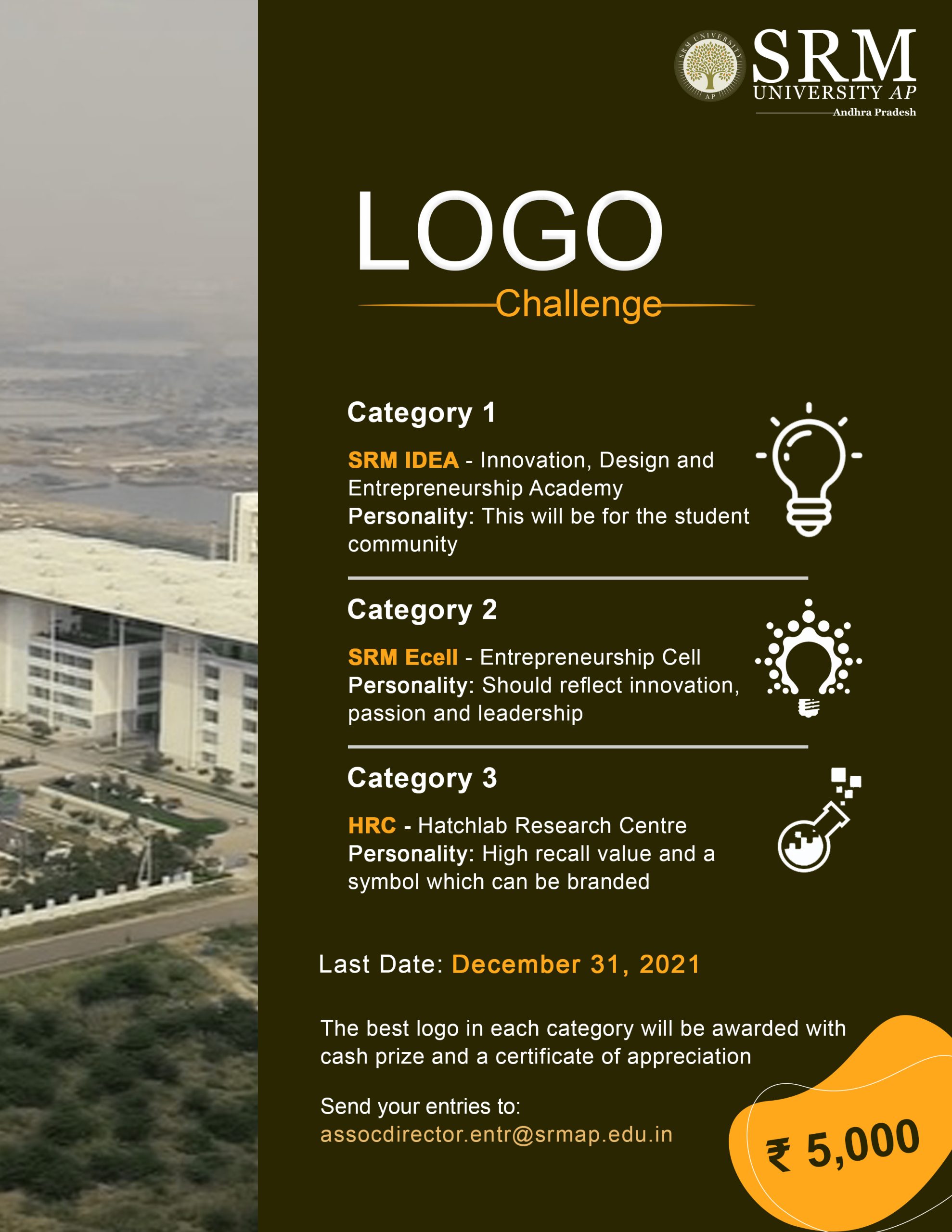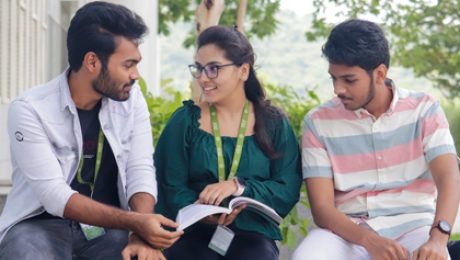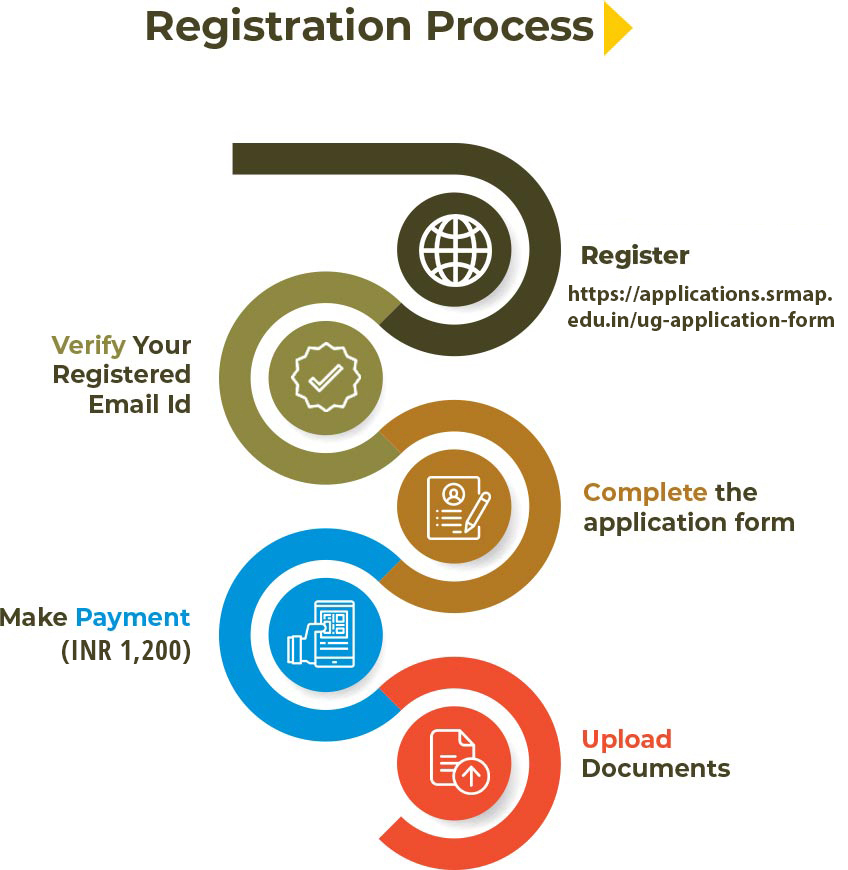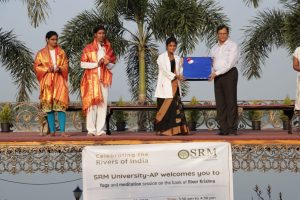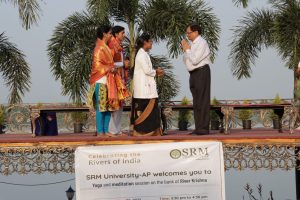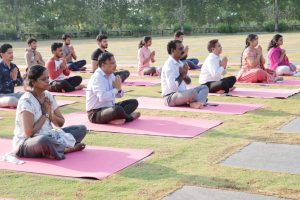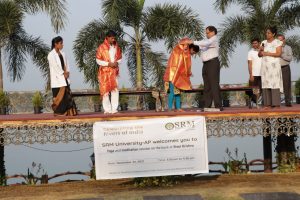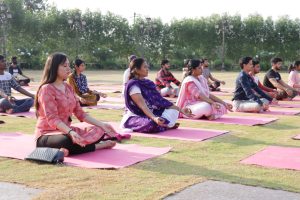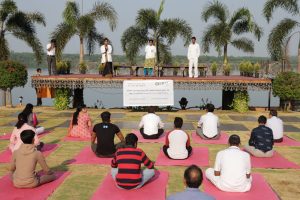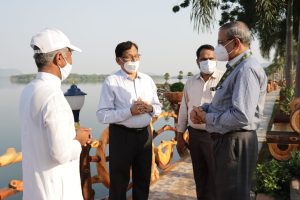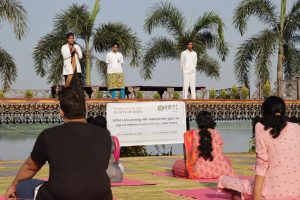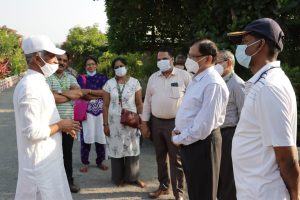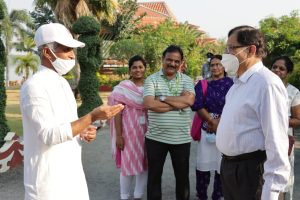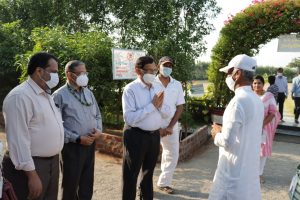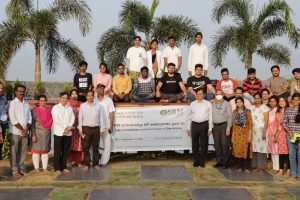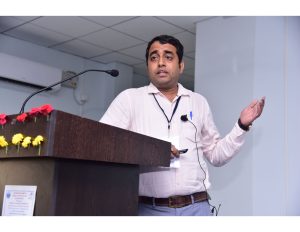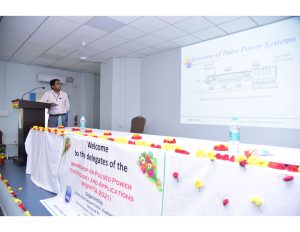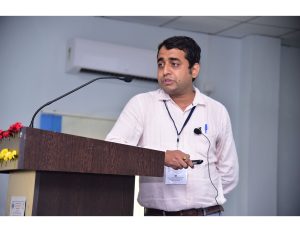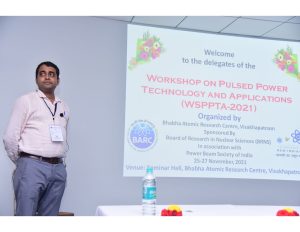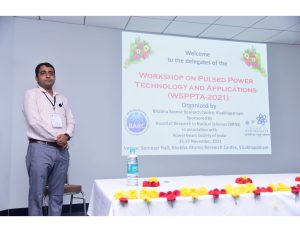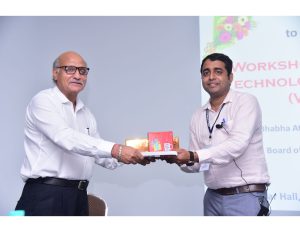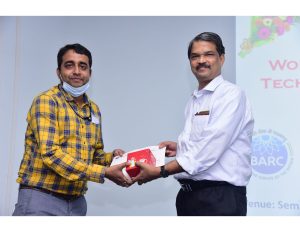Who invented this? On the origin of disruptive technologies
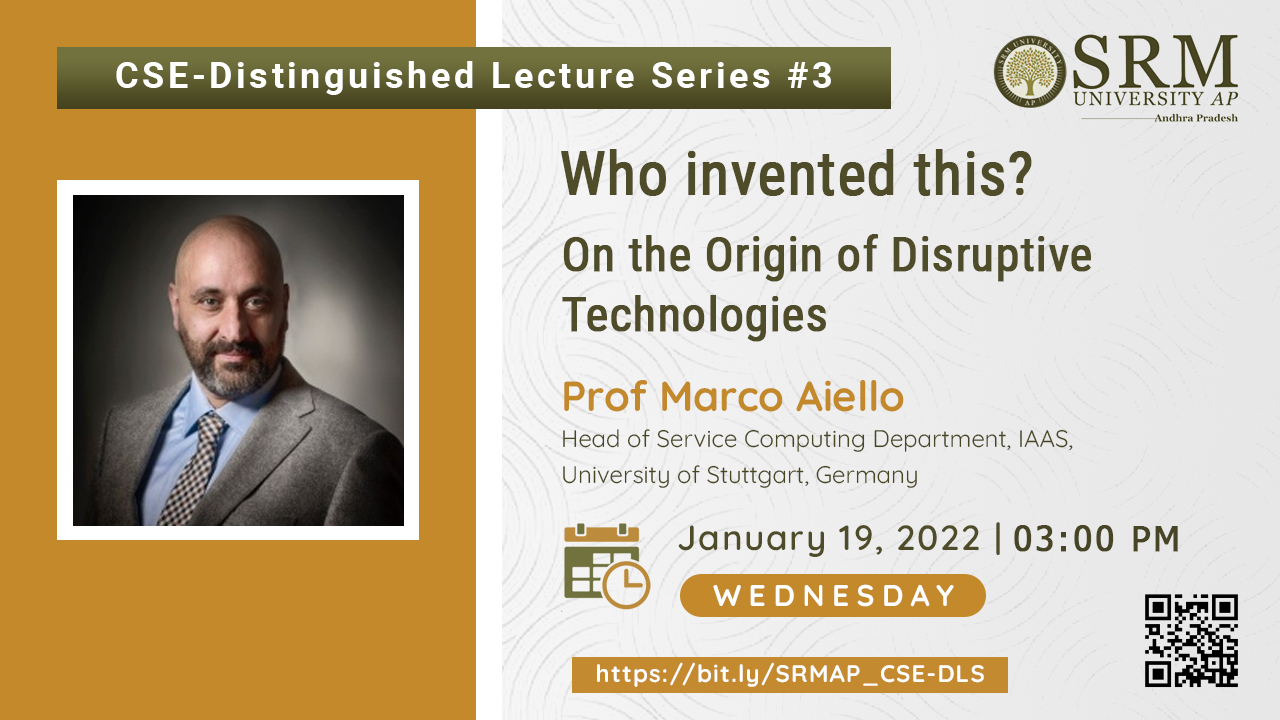
The Department of Computer Science and Engineering at SRM University-AP is organising the third lecture in the Distinguished Lecture Series on January 19, 2022, at 03.00 pm through virtual mode.
Prof Dr Marco Aiello, Head of Service Computing Department, IAAS in the University of Stuttgart, Germany, will be the esteemed speaker elaborating on the topic “Who invented this? On the Origin of Disruptive Technologies”.
The birth and evolution of ICT have been constellated by radical and rapid innovation originating from all kinds of sources. The Internet resulted from an effort started by the American government, Bluetooth came from a large European company, and the Web sprouted from a personal project of a CERN employee. In this talk, I will pick from the short but incredibly dense history of ICT to reflect on the evolution of innovation under the lenses of amateurism versus large scale, professional designs. In doing so, my main attention will be devoted to the Internet, the Web, and Service-Oriented Architectures.
Biography of Prof Dr Marco Aiello, University of Stuttgart, Germany
Marco Aiello is a professor of Computer Science and Head of the Service Computing Department at the University of Stuttgart, Germany. An elected member of the European Academy of Sciences and Arts, he is an honorary professor of Distributed Systems at the University of Groningen, The Netherlands, where he was a faculty member from 2006 till 2018. He holds a PhD in Logic from the University of Amsterdam, the Habilitation in Applied Informatics from TU Wien, and a master degree in Engineering from the La Sapienza University of Rome. His research interests are in Service Computing, Smart Energy Systems, Smart Buildings, and Spatial Reasoning. He is a member of the Scientific Advisory Board for Informatics of the Lorentz Center, Leiden, The Netherlands and Steering committee Faculty of Exact Sciences, University of Modena and Reggio Emilia, Italy. He has been a board member of the start-up Nerdalize BV, The Netherlands and Visiting Fellow of Macquarie University, Australia.
He has authored over 190 peer-reviewed articles and several books, including two bestsellers, and the most recent “The Web Was Done by Amateurs: A Reflection on One of the Largest Collective Systems Ever Engineered” published by Springer-Nature. He is a steering committee chair of the Service-Oriented Computing and Applications (SOCA) Conference. He has delivered several invited/panel talks at reputed conferences and workshops. He is the Editorial Board of various reputed journals like Energy Informatics (Springer), Journal on Service-Oriented Computing and Applications (Springer), International Journal of Web Services Research (IJWSR), Annals of Computer Science and Information Systems. He was the Information Director of the Transactions on Computational Logic of the Association of Computing Machinery (ACM) from its foundation in 2000 until 2014. He has got several awards and recognitions. He has executed 12 research projects. Since 2006, he has been investigating Service-centric software engineering, Smart energy cities, Energy-aware buildings, Energy-aware data centres and many more.
Stay tuned, and don’t forget to participate in this invigorating session on January 19, 2022.
- Published in CSE EVENTS, Departmental Events, Events, Webinars
Eminent Lecture Series with Prof Haribabu Ejnavarzala
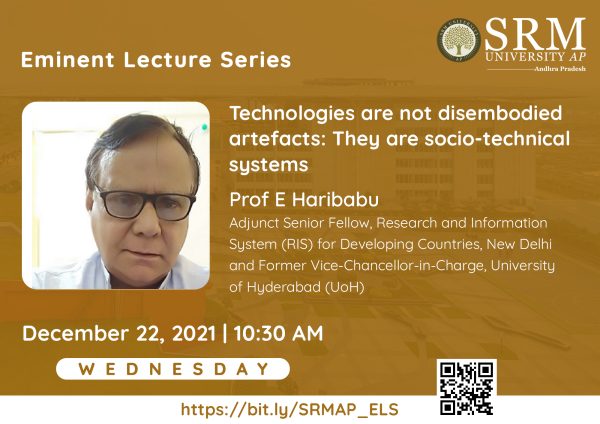 Technology is deeply integrated into the human society. The Department of Management Studies invites you all to the Eminent Lecture Series with our guest Prof Haribabu Ejnavarzala, for an engaging session on the economic, social, and other impacts of new technology on our lives.
Technology is deeply integrated into the human society. The Department of Management Studies invites you all to the Eminent Lecture Series with our guest Prof Haribabu Ejnavarzala, for an engaging session on the economic, social, and other impacts of new technology on our lives.
Topic: Technologies are not disembodied artefacts: They are socio-technical systems
Date: December 22, 2021
Time: 10.30 am IST
About the Speaker:
Prof Haribabu Ejnavarzala is an Adjunct Senior Fellow, Research, and Information System (RIS) for Developing Countries, New Delhi and Former Vice-Chancellor-in-Charge, University of Hyderabad (UoH).
Abstract:
Technologies are socio-technical systems. The forces that shape the development of technology are social, economic, cultural, political, and ethical in nature. A technology introduced into society has consequences for interrelated domains -social (class, caste, gender relations), economic, political, cultural, and ethical. Technologies also affect the environment- water, soil, air, and non-human forms of life. In other words, technologies are embedded in societal and environmental contexts. In order to understand the values and interests underlying the construction of technological innovation and its consequences, we have to unpack the design of a given technology and its associated practices. Technologies are intricately related to the interests and meaning structures of stakeholders. In this lecture, I focus on genetic modification of crops to show that it is a socio-technical system deeply connected with interests, sometimes conflicting interests, and meanings of relevant stakeholders – farmers who use the technology, consumers of products produced by genetic modification of crops, government, regulatory agencies, judiciary, and civil society organisations in the Indian context. In conclusion, I argue that innovations that promote equity, inclusivity and justice will have more significant social acceptability.
Please join this spirited session with our eminent guest on December 22, 2021, at 10.30 am IST for the next edition of Eminent Lecture Series.
- Published in Departmental Events, Events, Paari Current Happenings
BSc Biology student to intern at Harvard Medical School
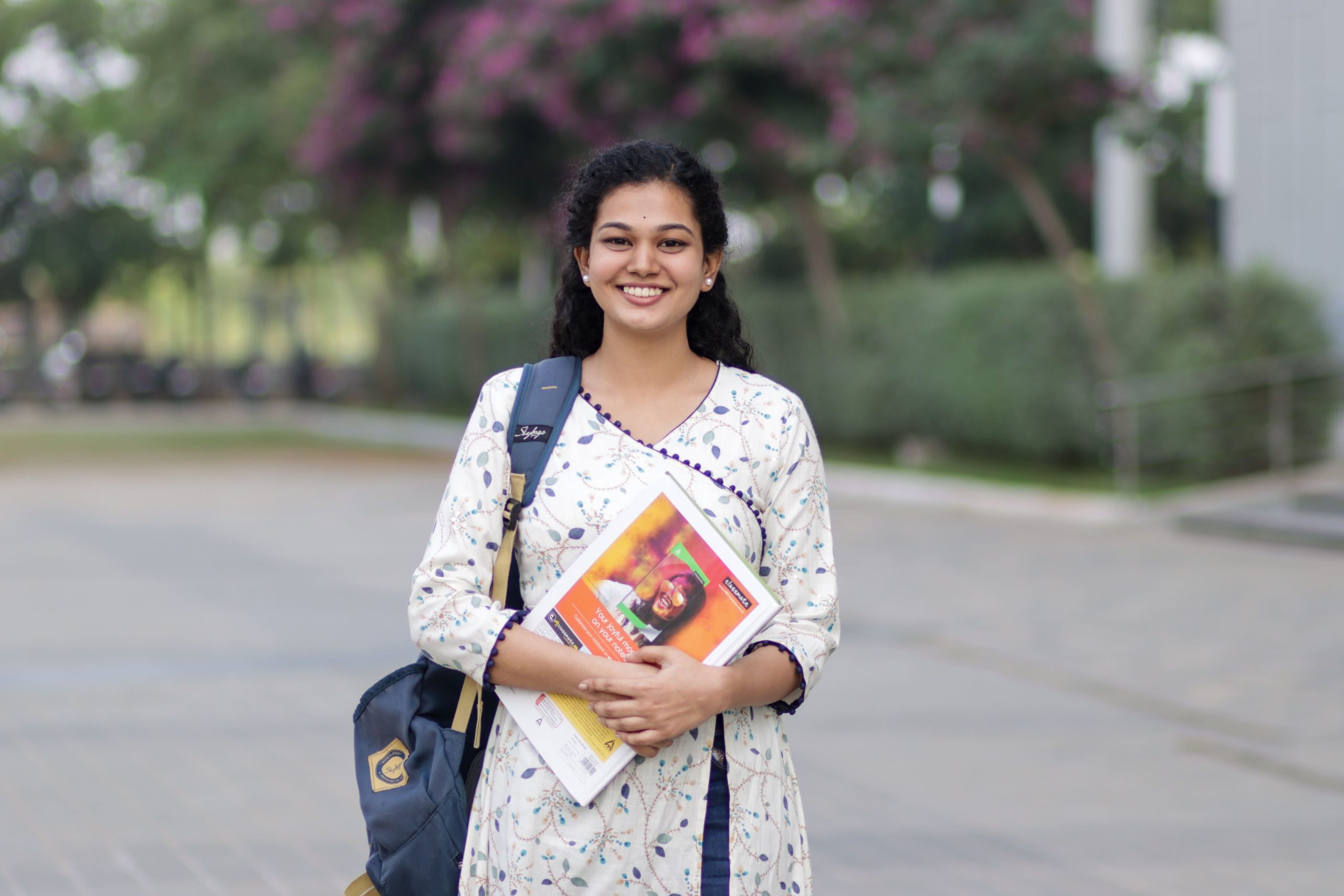 Rallapalli Bhavana Durga, a budding researcher from BSc Biology at SRM University-AP, earns an international internship at Harvard Medical School. The six-month internship will focus on bioengineering, cancer, and other biomedical research. The days at Harvard Medical School will impart an understanding of the development of cancer in an in-vitro model fabricated by the bioengineering approach.
Rallapalli Bhavana Durga, a budding researcher from BSc Biology at SRM University-AP, earns an international internship at Harvard Medical School. The six-month internship will focus on bioengineering, cancer, and other biomedical research. The days at Harvard Medical School will impart an understanding of the development of cancer in an in-vitro model fabricated by the bioengineering approach.
The Office of International Relations and Higher Studies guided Ms Bhavana throughout the application process. Every eligible student who applies for study abroad programmes is given orientation and motivation to bridge the attainment gap. They share information about various research/internships/projects with interested students. Ms Bhavana qualified the eligibility criteria for Harvard Medical School, which focuses on Tissue engineering and other Biomedical engineering fields. After completing the screening, she received a welcome e-mail for the internship at Dr Shiladitya Sengupta & Haelin Jang’s lab in Brigham and Women’s Hospital, Harvard Medical School. During the internship period, she will be involved in i) research-related activities involving the hands-on discovery of new biological pathways in cancer metastasis and (ii) writing for publications.
“I have received a lot of support from my professors and Dr Swetha Pasupuleti, Associate Director, International Relations”, says Ms Bhavana. “From the beginning, all my professors have been very encouraging, and their suggestions and criticisms were constructive. Dr Swetha has been very supportive and reassuring during the application process, taking away my inhibitions. I feel excited about my internship”, she added.
To tackle barriers to postgraduate education, SRM University-AP has designed ambitious programmes that improve the admission of students to global institutions. International Relations and Higher Studies department ensure that all students and faculty on campus are supported and assisted in gaining access to resources in order to achieve the vision and mission of SRM University-AP in becoming a multidisciplinary global university.
- Published in Biology News, Departmental News, IR-News, News, Students Achievements
SRMJEEE 2023 : Complete and Latest Information
B.Tech – SRMJEEE Application 2024
If you are here, then the chances are that you already know that SRMJEEE 2024 is the Joint Engineering Entrance Examination held by the SRM Institute of Science and Technology. Appearing for SRMJEEE 2024 is a very convenient method to get into one of the finest research institutes in any part of the country.
Through SRMJEEE 2024, you can become a part of SRM University-AP. Innovation and research at SRM University-AP are multidisciplinary and cutting-edge. You can be a part of one of the most advanced classrooms, learn from exclusive field experts from India and abroad, even take up a semester abroad yourself, and much more.
Are you interested in applying? You are just one simple click away from the smoothest application procedure.
Application for Admissions 2024 is Opened!.
Want to know more? Don’t worry. We will walk you through the entire process. This is as simple as it gets.
Table of Contents
- SRMJEEE 2024 Important Dates
- SRMJEEE 2024 Admission Process
- SRMJEEE 2024 Examination Question Pattern
- SRMJEEE 2024 Syllabus
- SRMJEEE 2024 Eligibility
- SRMJEEE 2024 Application Process
2. SRMJEEE 2024 Admission Process:

3. SRMJEEE 2024 Examination Question Pattern:
- Each question carries one mark. There are NO negative marks. You are encouraged to attempt every question.
- The mode of examination will be online.
- The question paper type will be MCQs or Multiple Choice Questions only.
- The question paper will be in English ONLY.
- Physics- 35 questions
- Chemistry- 35 questions
- Mathematics/Biology- 40 questions
- Aptitude- 10 questions
- English- 5 questions
- Total number of questions- 125
- Total time: 2.30 hrs
| SRMJEEE Sample Papers | Download Link |
| SRMJEEE Question Papers 2023 | Download Here |
| SRMJEEE Question Papers 2022 | Download Here |
| SRMJEEE Question Papers 2019 | Download Here |
| SRMJEEE Question Papers 2018 | Download Here |
| SRMJEEE Question Papers 2017 | Download Here |
| SRMJEEE Question Papers 2015 | Download Here |
4. SRMJEEE 2024 Syllabus:
5. SRMJEEE 2024 Eligibility:
A. Nationality and Age
Resident or Non-Resident Indian (NRI), holder of PIO or OCI card issued by Government of India are eligible to apply for the SRMJEEE 2024 selection process.
Note: NRIs, holders of PIO or OCI card issued by the Government of India, must apply under the International student category only.
Should have attained the age of 16 + on the 31st July of the Calendar year in which the 12 Board or Qualifying examination is to be held.
B. Eligibility to apply for the Qualifying Examination:
A Minimum aggregate score of 60 % or equivalent grade point in Class X.
A minimum aggregate score of 60% or equivalent grade point in Physics, Chemistry, and Mathematics in Higher Secondary Examination (10+2) / Intermediate (First and Second year) or from any Indian education boards recognised by the Board of Higher Secondary Education, Delhi (CBSE, CISCE, and State Education Boards recognised by Board of Higher Secondary Education) (https://www.bhsedelhiboard.net/List-of-recognised-board-in-India), International Baccalaureate (IB) diploma or IB certificate ( https://www.ibo.org/ ) or University of Cambridge General Certificate of Education (GCE) A-level with Physics, Chemistry, and Mathematics as compulsory subjects. (https://www.cambridgeinternational.org/ )
Students appearing for their Class/Standard XII final board examinations in the current academic year are also eligible to apply for SRMJEEE 2024. However, admission is confirmed based on meeting the minimum aggregate score of 60% or equivalent grade in Physics, Chemistry, and Mathematics.
C. Criteria for Admission
Admission will be based on meeting the eligibility conditions listed in Section A and Section B and the performance in the qualifying examination, i.e., SRMJEEE / SRMAPET.
The decision of the admission committee will be final and binding.
- Published in Admissions, Blog
Dr Inbarasan Muniraj receives SERB-SRG-DST grant to improve low light imaging
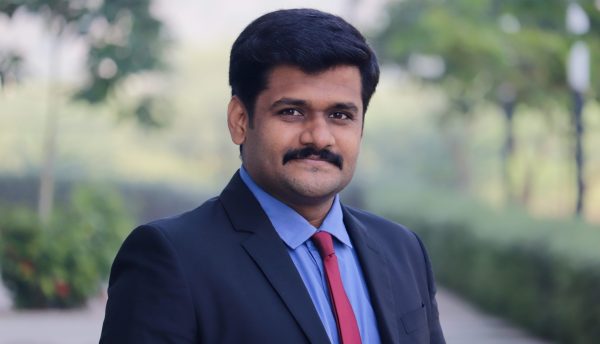 Imaging various three-dimensional (3D) objects under ultra-darkness is a fascinating process. However, our conventional cameras are not intelligent enough to capture the experience. Dr Inbarasan Muniraj, Assistant Professor in the Department of Electronics and Communications Engineering, is all about changing that.
Imaging various three-dimensional (3D) objects under ultra-darkness is a fascinating process. However, our conventional cameras are not intelligent enough to capture the experience. Dr Inbarasan Muniraj, Assistant Professor in the Department of Electronics and Communications Engineering, is all about changing that.
Dr Inbarasan Muniraj’s project, “Sensing in the dark: An automated off-focused points detection and removal from the photons starved 3D volumetric dataset”, has received a SERB-SRG-DST of Rs. 20.8 lacs for a two-year duration.
Dr Muniraj describes his project as such,
“Assume that there is no external light, e.g., a dark room, when you capture an image using a camera (mobile or DSLR). Often, the captured images will look dark, and it is too difficult tointerpret anything from the picture. However, algorithms have been developed to make use of the low scattered photons from a scene to estimate the equivalent normal intensity image. We use one such technique to generate photons-counted images for a 3D object and perform a 3D image reconstruction. One of the major problems in 3D reconstruction is off-focused points which look blurry and redundant. Therefore, in this project, we aim to employ a deep learning technique to smartly recognise and remove the off-focused points from a reconstructed 3D scene under photons starved conditions.”
Dr Inbarasan Muniraj is the sole investigator of this project. According to him, there are much more extensive social implications associated with this project. To note, this technique can be extended for various applications such as night vision, security, and biomedical imaging etc.
- Published in Departmental News, ECE NEWS, News, Research News
SRM University-AP takes part in Celebrating the Rivers of India
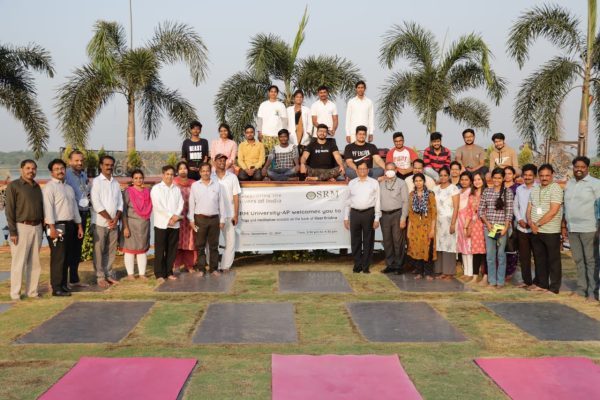 The students, faculty, and other staff members of SRM University-AP spent a memorable evening on the banks of River Krishna as a part of Celebrating the Rivers of India.
The students, faculty, and other staff members of SRM University-AP spent a memorable evening on the banks of River Krishna as a part of Celebrating the Rivers of India.
As a part of Azadi ka Amrit Mahotsav, the Ministry of Jal Shakti, Government of India, organises various programmes on the theme Celebrating the Rivers of India. This revitalising excursion organised by the Department of Student Affairs at SRM AP was held in honour of the fourth largest river at Manthena Satyanarayana Arogyalayam, Thullur, Vijayawada.
Dr Manthena Satyanarayana introduced the gathering to the practice of naturopathic medicine which is based on modern and traditional, scientific, and empirical methods. Dr Gangadhar, Ms Chaitanya and Dr Prema led a short rejuvenating yoga and meditation session for the participants.
The practitioners at the Arogyalayam were honoured with stoles and mementos as tokens of appreciation. Dr R Premkumar-Registrar, Directors of various departments, and Deans of schools were present on the occasion.
Arogyalayam Research Centre advocates protecting health by increasing the level of immunity and enhancing life-force (praana sakti) amidst very pleasing natural environs, with the help of experts and experienced personnel, under the overall supervision of Dr Manthena Satyanarayana.
“The waterfront and the refreshing greenery of nature heals our mind and soul in this stressful modern-day life”, said Prof V S Rao, Vice-chancellor, SRM University-AP. The event, organised for Celebrating the Rivers of India, gave the participants an opportunity to unwind, relish the view of boats gliding smoothly on the river, enjoy the lush bushes growing all around, and do yoga in the delightful breeze with serene atmosphere.
- Published in News
Higher education abroad might be easier than you think
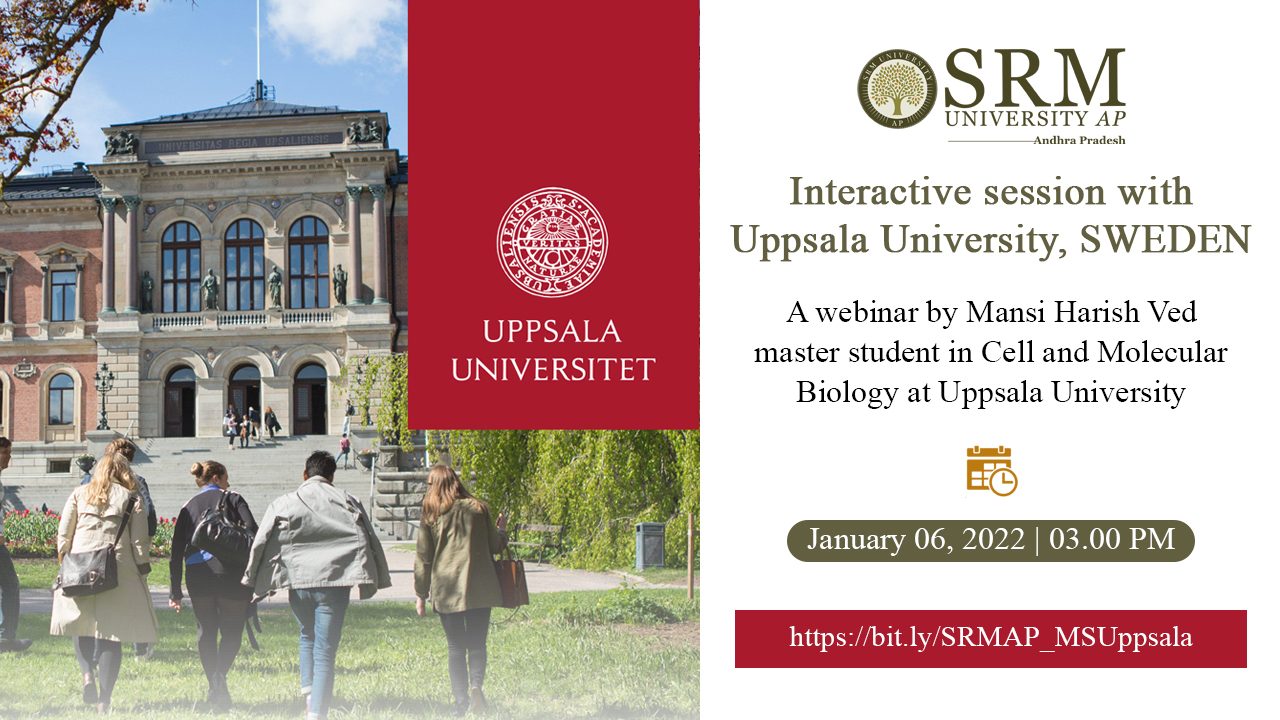 Do you dream about studying at a high-ranking university abroad?
Do you dream about studying at a high-ranking university abroad?
The Department of International Relations has arranged an exciting session to help you realize your higher education abroad dreams. From the land of the Northern Lights, Uppsala University (Sweden) brings you an insight into the opportunities available at one of the most reputed institutes in the world.
Mansi Harish Ved, master student in Cell and Molecular Biology, will join us from Uppsala University and share her experience to help others pursue their studying abroad dream.
Join the webinar on January 06, 2022, at 3.00 pm IST and see what your life at Uppsala University could look like. This session might be the ticket to your dreams of receiving higher education abroad.
- Published in Events, International Relations, IR-Events
Invited talk at Workshop on Pulse Power Technology and Applications (WSPPTA-2021)
Dr Somesh Vinayak Tewari delivered an invited talk on “High Power Closing Switches” on November 25, 2021, during the Workshop on Pulse Power Technology and Applications (WSPPTA-2021) held from November 25, 2021, to November 27, 2021, at Bhabha Atomic Research Centre (BARC) Facility, Visakhapatnam, sponsored by Board of Research in Nuclear Sciences (BRNS), Department of Atomic Energy, Government of India in association with Power Beam Society of India.
The workshop served as a platform for pedagogical presentations, discussions on intricacies of pulsed power technology and mutual interactions among young researchers, engineers and students from academia and applied research laboratories and talks were delivered by scientists of BARC, IPR, DRDO, CEERI, professors from IIT, IISc and experts from industry.
Dr Tewari delivered a talk on “High Power Closing Switches”, highlighting the working principle, mechanism, and applications of vacuum switches like ignitron, thyratron, pseudo spark gap, gas-filled spark gap switches, liquid and solid dielectric switches, magnetic switches, and modern-day semiconductor switches.
After his talk, Dr Tewari was highly appreciated and felicitated by Dr D. C. Pande, Dr Raja Ramana Distinguished Fellow of DRDO. The proceedings were compiled in the form of book chapters and circulated to participants.
- Published in Departmental News, EEE NEWS, News


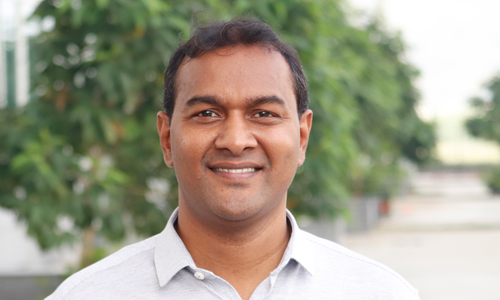 SRM University-AP is pleased to announce that
SRM University-AP is pleased to announce that 